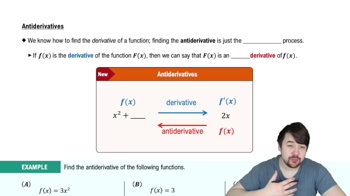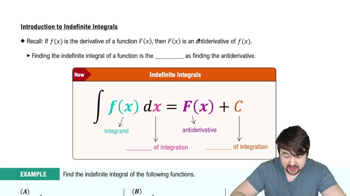Finding Functions from Derivatives
Suppose that f(−1) = 3 and that f'(x) = 0 for all x. Must f(x) = 3 for all x? Give reasons for your answer.
 Verified step by step guidance
Verified step by step guidance Verified video answer for a similar problem:
Verified video answer for a similar problem:



 5:53m
5:53mMaster Finding Differentials with a bite sized video explanation from Patrick
Start learning